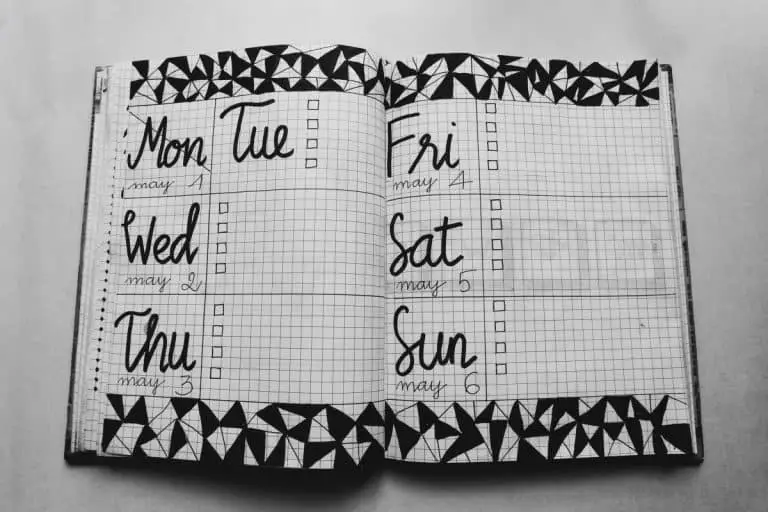How to Make Yourself Study When You’re Not Motivated Every Time!
There are days when we don’t wanna study. Some days are definitely easier to study than others. Whether we have a busy schedule, or tired, or simply not in the mood, getting ourselves to study is essential for academic success. What we do consistently is who we are. Good studiers study consistently.
So how do you get yourself to study when you are not motivated? Enclosed below is a table that outlines each technique you can use to get yourself to study when you’re not motivated:
| Study Technique | How It Helps Get You To Study When You Are Not Motivated |
|---|---|
| Change Your Environment | Adds variety to study experience |
| Use Music to Motivate You | Music can both motivate you and help you to focus |
| Join a Study Group/ Find an Accountability Partner | Being accountable to someone else reduces procrastination |
| Create a Study Schedule | Provides clarity in terms of when to study |
| Have a Consistent Sleep Schedule | Improves physical and mental state, which can increase likelihood of being ready to study |
| Study a Little Bit Each Day | Makes studying a habit. Breaks up studying into smaller units of time, reducing perceived mental overhead of studying |
| Track Your Time | Increases productiveness of study time by tracking how much time is actually spent studying |
| Use a Strong Note-Taking System | Simplifies the studying process by making the content easier to consume |
| Keep a Journal | Documents feelings and thoughts, providing context and revealing patterns of behavior |
Before we get started with the article, if you are looking to learn pretty much anything, you should really check out SkillShare. Skillshare is an online learning platform with courses on pretty much anything you want to learn. To learn more about Skillshare and its vast library of courses and get TWO FREE MONTHS of UNLIMITED CLASSES, click the link below:
SkillShare – Online Learning Platform
If you are looking for the best study tools out there, you should read our article on the best study tools to enhance your studying at the link below:
The Ultimate Study Tools You Must Use to Succeed!
Change Your Environment
When things get stale, you need to change them up in order to make them more desirable to do. In the case of studying, changing up where are you study can make studying seem fresher than staying in the same place. Studying can get monotonous. In many cases, you already don’t want to study. There are a million activities that are more fun than studying.

Changing where you study could have a massive impact on your motivation to study. Humans desire variety. It is easy to become bored with the same old same old. By altering one aspect of your steady routine, you can actually make studying more fun. There are tons of places that are good for study beyond the basic ones you’re probably thinking about like the library or your dorm room. In fact, I actually wrote an article on some great places to study which I will link to below:
Link to Best Places to Study Article
Use Music to Motivate You
Music can be a motivating force. Sometimes, having some background, non-distracting music can make the studying experience more bearable and enjoyable. To be clear, I am not talking about lyric intensive that is distracting and hinders your focus from your studies. Instead, I am referring to music that provides a background track to your brain’s processing of your study material. Cities of show that certain types of music, like classical music and ambient noise can help the brain stay focused.

Or information on how music can help your studies, check out my article on whether you should listen to music while studying at the link below:
Link to Should You Listen To Music While Studying Article
Join a Study Group/Find an Accountability Partner
When you’re not motivated to study, it is very easy to talk to yourself into not doing so. The end result is feeling bad about that study and diminished academic performance. Will power only goes so far. However, one way to overcome the lack of motivation is to have an accountability partner. Typically, your accountability partner or partners will be part of your study group, which I highly recommend you join.
Study groups are great for studying in part because they force you to participate consistently. No one wants to lose face in a group. If you come and prepared the rest of the group or judge you. No one wants to be judged.

Study groups also make the study experience more fun. Think of study groups and accountability partners as using both the carrot and the stick for motivation. The stick part is not wanting to lose face with the group while the carrot part is interacting with your friends and learning together.
Create a Study Schedule
If you don’t have a steady schedule, you’ll find yourself not studying. Having a study schedule, conversely, provides you a structured set time for studying every day. Creating a steady schedule can seem daunting at first however, once you establish your schedule, you’ll just take the thought out of whether to study. This shortcuts your brain’s ability to rationalize not studying. If you know that every Wednesday at 10 AM you study your physics, you are less apt to skip studying physics.

Or information on how to create a study schedule, check out my article on how to create a study schedule at the link below:
Link to How to Make A Study Schedule Article
You can also use active recall as part of your study plan, for more information on Active Recall, check out our Active Recall Guide.
Have a Consistent Sleep Schedule
While we are talking about schedules, do you get the same amount of sleep every night? Do you go to bed at the same time generally and wake up at the same time? If the answer is no, you are not doing your body any favors. Your body craves consistency in terms of how much rest it gets. If you find yourself sleeping 10 hours one day and five hours the next, your body will be in a sub-optimal state that will lend itself to procrastination. Procrastination is the enemy of consistent study. While each person is different, generally you should aim for 7 to 9 hours of sleep a night. Also, you should strive to go to bed at the same time and wake up at the same time each day.

I know what you’re thinking. That sounds impossible. Between my personal and educational responsibilities, it is very hard to maintain a consistent sleep schedule. I hear you and I struggle with this myself.
However, you should make every effort to keep it as consistent as possible and ensure that you are regularly getting the 7 to 9 hours of sleep per night.
Study a Little Bit Each Day
If you put off studying, the act of studying becomes a huge mental monster. The key is to break up with your study sessions as a smaller, bite-sized session. If you set yourself up this way, you will remove a mental hurdle from your mind. The second benefit of studying a little bit each day is that you develop a habit of studying. Most times we think of habit is negative things, as things we need to change or not do anymore. However, you can develop good habits which will serve you in the future. One of those habits is a daily study routine. One of the advantages of daily study is that each session doesn’t have to be too long. This reduces mental strain as you know you only have to do a little bit each day.

The second advantage of habituating studying into a daily ritual is that it takes the thought out of finding time to study, similar to creating a study schedule. When studying becomes a habit you no longer need to think about it because you automatically do it. This works for good habits as well as bad habits. If you spend a lot of time doing something consistently, you will start to make that behavior a habit and do it without thinking.
Do you use Google Docs to write your papers? Check out our guides for using Google Docs below:
| Guide | Link To Guide |
|---|---|
| How to Use Footnotes and Citations in Google Docs – Detailed Guide | LINK |
| How to Sort a List Alphabetically in Google Docs – Step-by-Step | LINK |
| How to Use the Google Docs Outline Tool with Screenshots and Video! | LINK |
| Is The Google Docs Word Count Accurate? We Tested it to Find Out! | LINK |
| Google Keep For Students – The Complete Guide | LINK |
Track Your Time
It’s one thing to create a study schedule and to make studying a habit, how do you actually spend your time studying? How much of the time you say you’re studying is actually spent browsing the Internet or social media? I know that when I start a time tracking, I was surprised at how much of my time I thought I was being productive was actually wasted time doing unimportant things like checking social media or browsing YouTube for cat videos 😀. The only way to truly understand how you spend your time is to track it. Time tracking is different from creating a schedule. Time tracking is what you actually spend your time doing at any given moment. It is easy to create a schedule, spend some of the time of the schedule doing the work and mark off that you spent the full time working. Time tracking forces you to look at your work expenditure from a different perspective.
Time tracking works because when we are conscious of what you’re doing in a given moment, we are more likely to do the thing that you need to do. You never want to leave time to chance as we tend to drift towards pleasurable activities at the expense of getting things done. This applies to studying. But how do you track your time? There are several systems out there but I would start with simply using the timer application on your smartphone. When you start an activity, start a timer. Well, the timer is running, only work on the thing you need to get done, in this case studying. Do not do anything else. If you do anything else stop the timer. This will force a level of focus on the activity at hand.
It is easy to think that too much structure is stifling. We all want to believe that we are creative and that any sort of structure will hamper our creativity. However, the opposite is actually true. Many of the greatest most creative people also happen to be very structured and approach their time in a structured fashion. If you don’t know where to get started in time management, I suggest you read my article on the Pomodoro Technique. The Pomodoro Technique is a time management system that breaks up worktime into 25 minute segments with five minute breaks in between. After 4-25 minute work segments, you take an extended break. For more information on the Pomodoro technique it how you can use it to get things done, click on the link below:
Link to Pomodoro Technique Article
Use a Strong Note-Taking System
One of the biggest inhibitors to getting yourself to study is the perceived amount of work it takes. As mentioned earlier, our brains naturally want to move away and resist difficult things. Part of this resistance when it comes to studying is what and how to study. This is where using a strong note-taking system can really reduce the cognitive load of getting yourself to study. Having a strong note-taking system provides a structured study process. If your notes are haphazard and inconsistent, you will know that and will be more resistant to studying due to the perceived level of work.

Conversely, if you have strong, consistent notes that both capture the content and provide a framework for active recall and review, you will feel less unsure about studying. It will also reduce the amount of time it takes to learn or review the content, which reduces the desire to not study. The question becomes, how do you take strong notes? There are a bunch of different note-taking systems, each of which has its strengths. The system I use is the Cornell Note-Taking Method. The Cornell system emphasizes active listening, internalizing the content and active recall via the creation of your own questions on the content.
For more information on the Cornell Note-Taking Method, click on the link below:
Link to How to Use the Cornell Note-Taking Method article
Keep a Journal
This one may seem a bit strange. How does keeping a journal help you to get yourself to study when you aren’t motivated? Well, capturing your feelings, mood and thoughts consistently helps you to better understand yourself. Once you start to understand yourself better, you will better understand what drives you and how to get yourself to push through to get things done. This has been my experience. I used to wonder why I tended to procrastinate and not study. I had no clue due to a lack of deep reflection. Journaling helps you to look within yourself. It can also be very helpful to have a running log of your thoughts to provide historical context and to help you identify patterns of behavior, both positive and negative.

Identifying your behavior patterns and what causes them can really help you to learn how to put yourself into more productive states. The ability to manage yourself mentally can help you to push the right buttons to get yourself to follow through. I actually wrote an article on how to stop procrastinating in college, which you can find at the link below:
Link to How to Stop Procrastinating in College article
Summary
One of the key areas that separate good students from average students is that student’s ability to get themselves to study consistently, even when they are not feeling motivated to do so. Using the techniques and systems described in this article can help you push through and study even you are not feeling particularly motivated to do so. I hope this article helps you to study more consistently. Good luck.
Want More Tips and Tricks? Subscribe to our Newsletter!
If you haven’t already subscribed, please subscribe to The Productive Engineer newsletter. It is filled with tips and tricks on how to get the most out of the productivity apps you use every day. We hate spam as much as you do and promise only to send you stuff we think will help you get things done.
Check Out Our YouTube Channel!
We have a YouTube channel now and we are working hard to fill it with tips, tricks, how-tos, and tutorials. Click the link below to check it out!
Check out our Resources Page
Check out our resources page for the products and services we use every day to get things done or make our lives a little easier at the link below:







